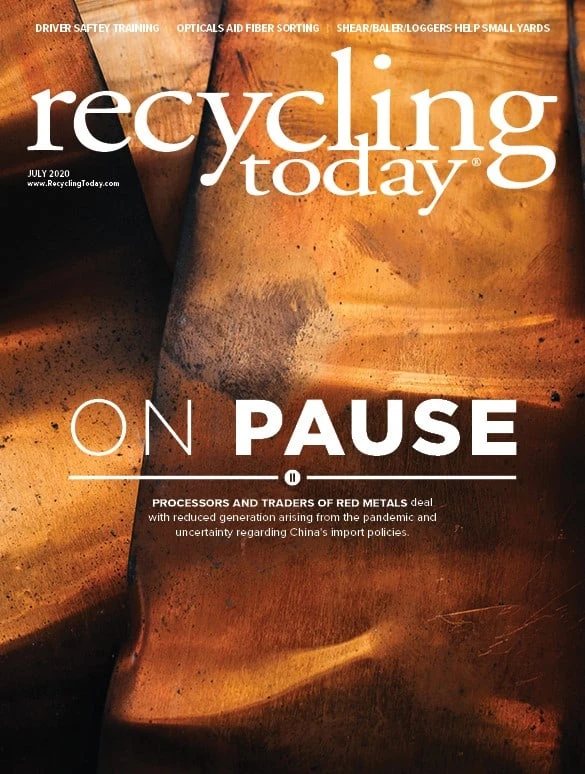Nonprofit tracks its impact on recycling in the US
In the past six years, The Recycling Partnership has helped to deliver recycling carts to more than 700,000 U.S. households and to educate more than 77 million households on recycling. These were some findings the Falls Church, Virginia-based organization discovered and shared in its “2020 Impact Report,” available at https://impactreport2020.recyclingpartnership.org/2020-impact-report, which shows how the organization activated change in communities since it started in 2014.

“As we navigate the impacts of COVID-19 as a nation, one of the tasks ahead is to rebuild a strong U.S. economy in a way that supports people and the planet,” says Keefe Harrison, CEO of The Recycling Partnership. “Recycling will have a central role to play in the process of rebuilding the U.S. economy. Our 2020 Impact Report shows how we’re working with communities, corporate brands and other industry-aligned organizations to move the U.S. from a linear economy to a circular economy.”
According to a news release from The Recycling Partnership, the report highlights how the organization is mission-focused on helping more than 1,500 U.S. communities overcome recycling challenges. Since the organization’s inception in 2014, it has leveraged more than $90 million in impact.
The Recycling Partnership says some of the households it reached were in Ohio, where it worked with the Ohio Environmental Protection Agency to reduce contamination in five pilot communities last year. As a result, those communities reduced contamination by 40 percent and increased the value of cleaner recyclables by about $20 per ton.
The nonprofit says its strategy for the next 18 months focuses on implementing smarter systems across the value chain, continuing to unlock the supply of recyclables from communities, reducing contamination in local recycling systems, sparking innovation through material collaboratives to make more items commonly recycled and working with elected leaders to ensure an even playing field for recycling and plans for improved infrastructure.
The pandemic shows how loosely connected but highly dependent the U.S. recycling system is and the steps needed to move toward the recycling system of the future, it says.

Explore the July 2020 Issue
Check out more from this issue and find your next story to read.
Latest from Recycling Today
- Aqua Metals secures $1.5M loan, reports operational strides
- AF&PA urges veto of NY bill
- Aluminum Association includes recycling among 2025 policy priorities
- AISI applauds waterways spending bill
- Lux Research questions hydrogen’s transportation role
- Sonoco selling thermoformed, flexible packaging business to Toppan for $1.8B
- ReMA offers Superfund informational reports
- Hyster-Yale commits to US production





